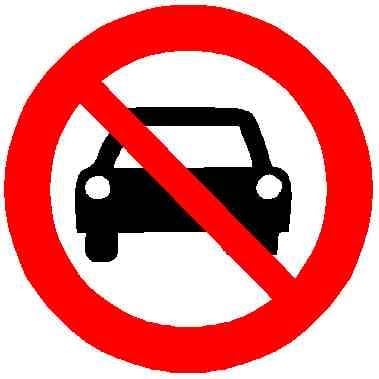The cause was easy enough to identify: Data parsed by Kuhls and her colleagues showed that drivers were speeding more, on highways and on surface streets, and plowing through intersections with an alarming frequency. Conversely, seatbelt use was down, resulting in thousands of injuries to unrestrained drivers and passengers. After a decade of steady decline, intoxicated-driving arrests had rebounded to near historic highs.
… The relationship between car size and injury rates is still being studied, but early research on the American appetite for horizon-blotting machinery points in precisely the direction you’d expect: The bigger the vehicle, the less visibility it affords, and the more destruction it can wreak.



Re the headline: Can someone explain to me - a German - when to use “deadly” and when to use “lethal”? Feeling pretty confident with the language, but this one just confuses the shit out of me…
Hmm, they’re pretty synonymous, but I think you’re noticing this slight, occasional difference in use: Lethal is active, deadly is passive. A thing can actively be lethal when used by you, but when it’s something that happens to you, it’s deadly. An accident is something that’s considered to have happened to you, despite the fact that it’s typically your fault to some extent.
I’m no linguistics expert but these are the definitions from Webster
They are synonyms and most people would probably use them interchangeably. I guess the biggest difference is lethal applies to something that is about to cause death, whereas deadly applies to death that has moreso already happened.
lethal weapons, deadly accident, etc …
Deadly Weapon is my favorite action flick franchise
I don’t think you can use lethal for a metaphorical situation where nobody can actually die. For example “Deadly smile” or “deadly fart”
There are a few examples where there’s a convention around using one or the other, such as ‘lethal dose’ but not too many.
yeah you can
Thanks for all the replies. I had a very grim interpretation where the driver being an active part was removed. This happens a lot in German media where it is rarely a driver killing someone but instead someone “dying in traffic” - as if it’s a higher power.
Glad it might just be interchangable or an alliteration…
@dmrzl @silence7 I think they’re largely interchangeable, like “lethal crash” and “deadly crash”. Perhaps the use of deadly here was for alliteration: deadly drivers.
Ah, just being an alliteration might be the case. I used to separate these by active/passive (as pointed out by some of the other comments) which is why this was so confusing to me.